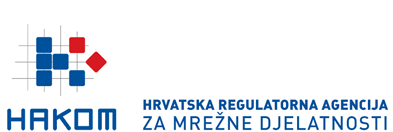The first International Conference of Transport Law and Insurance Law-INTRANSLAW Zagreb 2015 was held
NEWS
The lecture on “The Role of Sectorial Regulator in the Rail Service Market” was held by Mr. Nikola Popović, Council Member of HAKOM.
ZAGREB, October 19, 2015 –Under the auspices of the Ministry of Maritime Affairs, Transport and Infrastructure and the Ministry of Foreign and European Affairs, the Faculty of Law in Zagreb and the Croatian Academy of Legal Sciences the first International Transport and Insurance Law Conference - INTRANSLAW Zagreb 2015 was held in the Conference Centre FORUM Zagreb. The Croatian Regulatory Authority for Network Industries (HAKOM) was Institutional partner of the event.
The most important topic at the conference was the European Union Transport Law. A number of current affairs related to this comprehensive and dynamic legal area were discussed at the meeting. The conference was attended by the experts of all profiles: carrier representatives, operators and freight forwarders, transport infrastructure managers, marine and cargo insurers, supporting investors, public administrations, international organizations, the EU authorities, regulatory authorities, scientists, judges, lawyers, professional associations and others. Scientific and technical conference took place in several plenary sessions, thematic blocks and sections for partner networking.
The lecture on “The Role of Sectorial Regulator in the Rail Services Market” was held by Mr. Nikola Popović, Council Member of HAKOM. The role of the regulator is to generally encourage competition by eliminating barriers for market functioning, especially through the regulation of railway services, and to encourage efficient usage of railway infrastructure. The regulator also promotes the interests of railway service users by securing an approach compliant with laws, transparent acts of infrastructure managers and railway service facilities managers, providing legal protection for subjects who submit the request for allocation of infrastructural capacity, including a mechanism for resolving disputes as needed. In the latter case, the regulatory body acts upon a party’s complaint on a network report, application of that report, procedure for the allocation of capacities and other conditions of entrance, as well as charges for railway services. Among its other tasks, the regulator continuously observes competition in the railway services market, having the right to collect necessary information from the participants. It is empowered to protect passenger rights in the way prescribed by the EU Regulation. In that regard, it can conduct inspections and decide on passenger complaints against decisions of railway carriers. The Act on the regulation of railway services market sets relevant rules in regard to protection of passenger rights.
# # #
For additional information please contact:
Croatian Regulatory Authority for Network Industries (HAKOM)
Roberta Frangeša Mihanovića 9
10110 Zagreb, Croatia
Tel. + 385 (0) 1 700 70 07
Fax + 385 (0)1 700 70 70
Media inquiries can be submitted online using HAKOM’s official website:
Registration required.
ABOUT HAKOM: HAKOM (www.hakom.hr) - Croatian Regulatory Authority for Network Industries – ensures preconditions for a fair market competition, stable growth and environment for innovations in the electronic communications and postal services market. HAKOM protects users’ interests and the possibility of choice among various communications and postal services at affordable prices, defines sustainable competitive conditions for operators and service providers under fair conditions for return on investment, and provides support to economic growth, public services and the quality of life in the Republic of Croatia by using modern technologies. HAKOM’ strategic goals are: to promote regulation of the electronic communications and postal services market, to support growth of investments and innovations in the electronic communications and postal services market, to provide efficient use of limited resources, to accelerate the growth of broadband products and services, to provide affordable offers of communications and postal services, to provide protection and informing of users, to build an efficient and comprehensive information system, to define and implement efficient processes, and to acquire multi-disciplinary competencies in market regulation.
|

